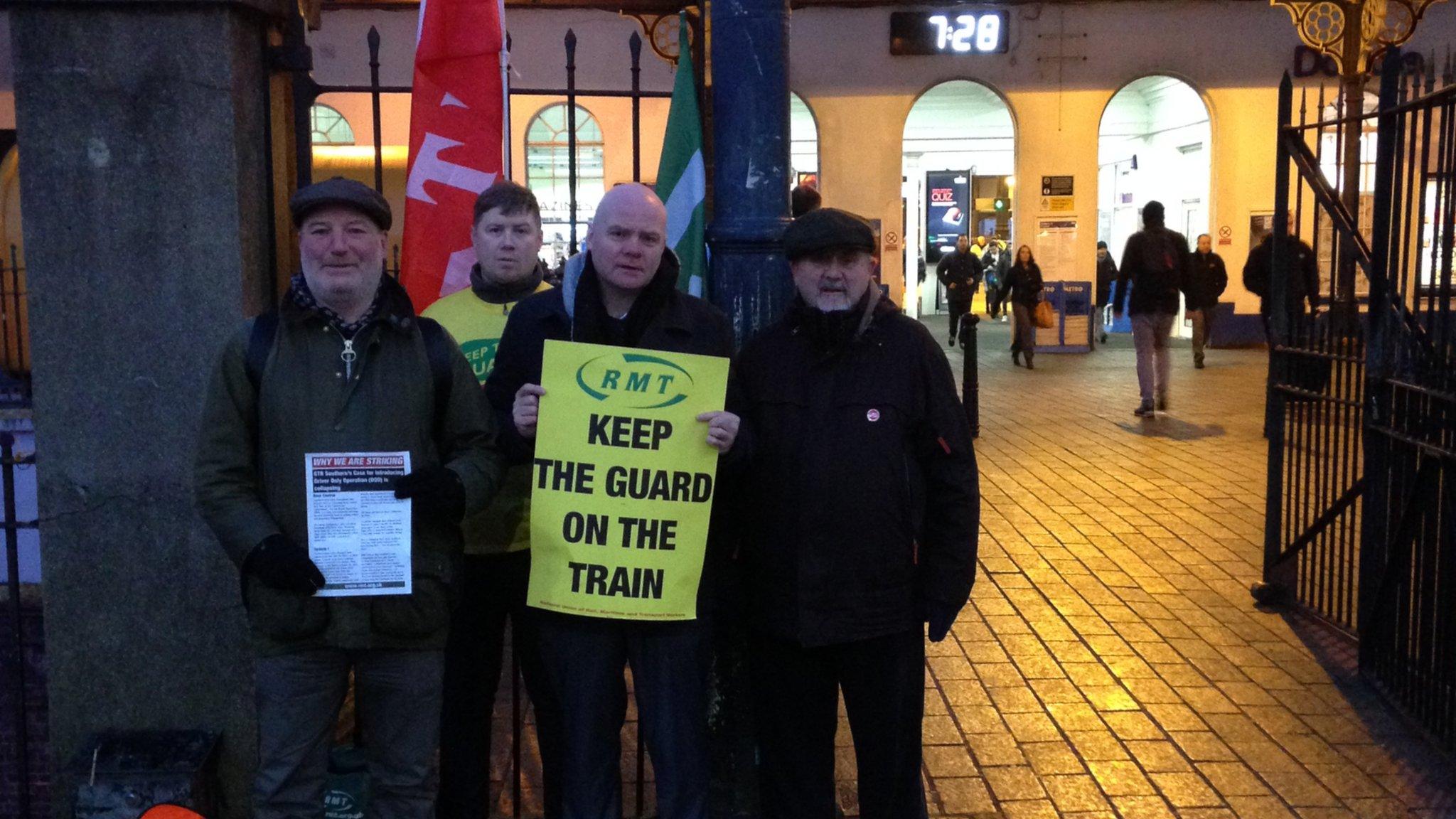Will the government take over Southern trains?
- Published
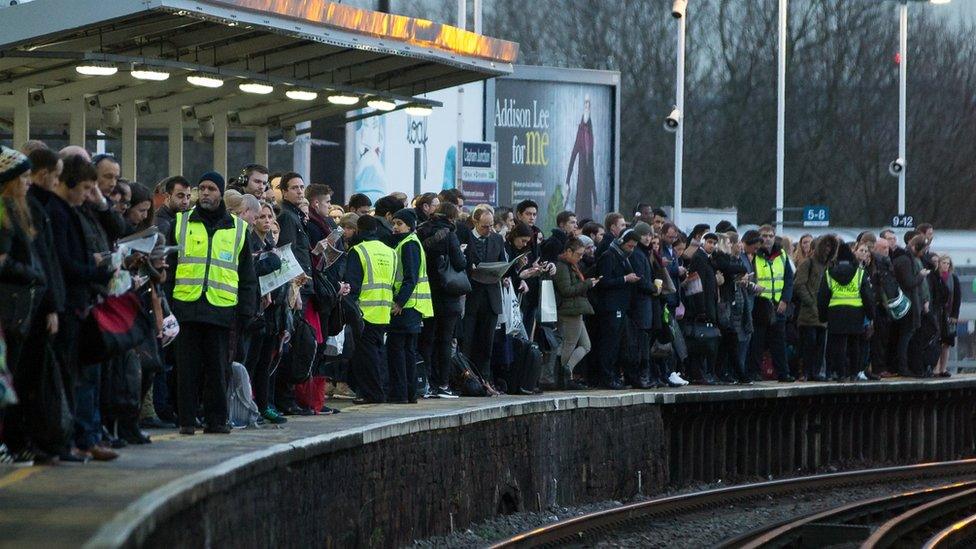
Would putting Southern rail back into public ownership solve the long-running dispute?
"I would welcome this". It's something you wouldn't expect to hear - Tory MPs don't normally offer a warm greeting to the idea of renationalising part of the rail network.
That's how topsy-turvy the Southern situation has become.
Chris Philp, the Conservative MP for Croydon South, has been calling for the government to strip the company of its contract since last May.
It would mean placing it back into public hands, at least for the time being, but it's a price Chris is willing to pay.
"The franchise is too big and the current finance structure doesn't incentivise the company to perform", he says.
"The unions must take their share of the blame, but the company has also been incompetent."

Unusually for a Conservative MP, Chris Philp would be in favour of a return to public ownership, for now
Labour is pushing to renationalise the entire rail network, but its Hove and Portslade MP, Peter Kyle, isn't convinced that a Department for Transport (DfT) takeover is the right move for Southern.
"I worry that passengers will believe, falsely, that all the problems can be solved with a quick wave of the wand. Public ownership might solve some of the problems, but not all."
Peter says he wants "muscular" government intervention, but not necessarily officials taking charge.
What other options might be on the table for ministers?
Ditch the contract?
The DfT is currently crunching the numbers, trying to work out if Southern's parent company, Govia Thameslink Railway (GTR), has broken its contract promises on delays and cancellations.
If it has, (and they've been arguing about it for months. Does a big rise in sick days, for example, count as unofficial industrial action?) ministers have the option of ditching the deal.
But would that really help?
Not necessarily: don't get the impression that there is a team of rail super-sub bosses sitting on the sidelines poised to make the trains run on time.
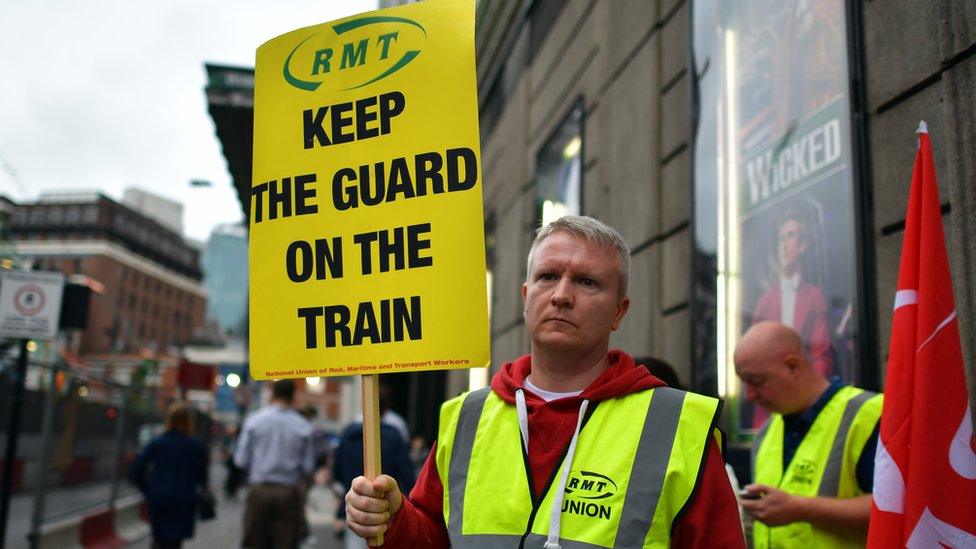
The role of the guard is central to the dispute between workers and the company
If the government did take over, it would remove the top layer of executives, replacing them with yet more top executives, probably semi-retired former rail bosses. The rest of Southern's staff would stay the same.
And they'd be facing the same problems:
Solving the longest running industrial dispute since the network was privatised. Southern has imposed changes to the role of on-board conductors, changes the unions loathe and the government supports. Doubtless the new government team would support them too.
Sorting engineering problems that are nothing to do with the dispute. Network Rail is actually responsible for half of Southern's delays. Ministers recently formed a task force to bash some heads together, because they said Southern and Network Rail weren't collaborating to solve problems.
Plugging a driver shortage.
Terrible staff relations. Several drivers have said to me that they are dealing with the same "decent" local managers that they've been dealing with for years, but the tone from the top has become more "vindictive" and "petty".
And I haven't even mentioned the debilitating upgrades to the Thameslink part of the franchise, including rebuilding London Bridge.
Experts had predicted it would cause 10,000 delay-minutes per year. In reality, it's caused 10,000 delay-minutes per week, and there's plenty more to come.
A poisoned chalice?
Then there's what happens afterwards. Any new team would only be caretakers until a new company was brought in and that process takes at least 18 months.
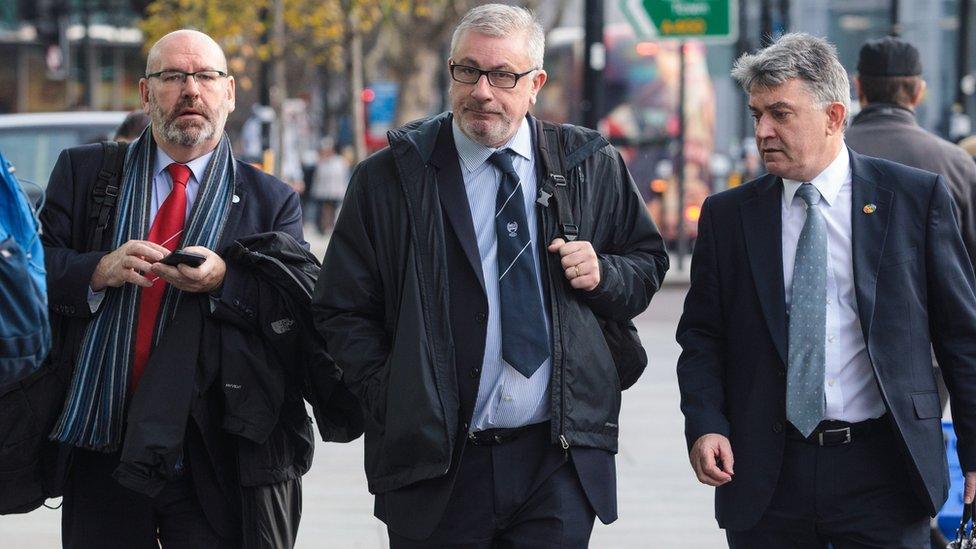
Talks between the unions and the company have so far failed to reach agreement
Talking to people at other train operating firms, they feel they dodged a bullet not winning the current GTR contract, so would they really bid for a new one? National Express has just pulled out of trains completely. It used to be Britain's biggest player in the sector.
The government is legally obliged to keep the trains running whatever happens. It's hardly surprising that officials have been kicking around options if GTR gets ditched.
They've a person in mind to be the temporary boss.
Pressure is mounting for the Transport Secretary Chris Grayling to take direct action, but renationalising part of the railway goes against every bone in his political body. It would be a humiliating loss in the government's effort to sell privatisation as a success story.
Chris Philp MP still thinks it's worth it, though.
"You can't point at this and say privatisation doesn't work", he says. "This situation isn't like anywhere else."
His belief is that they tried something different with this franchise and it didn't come off.
- Published13 December 2016
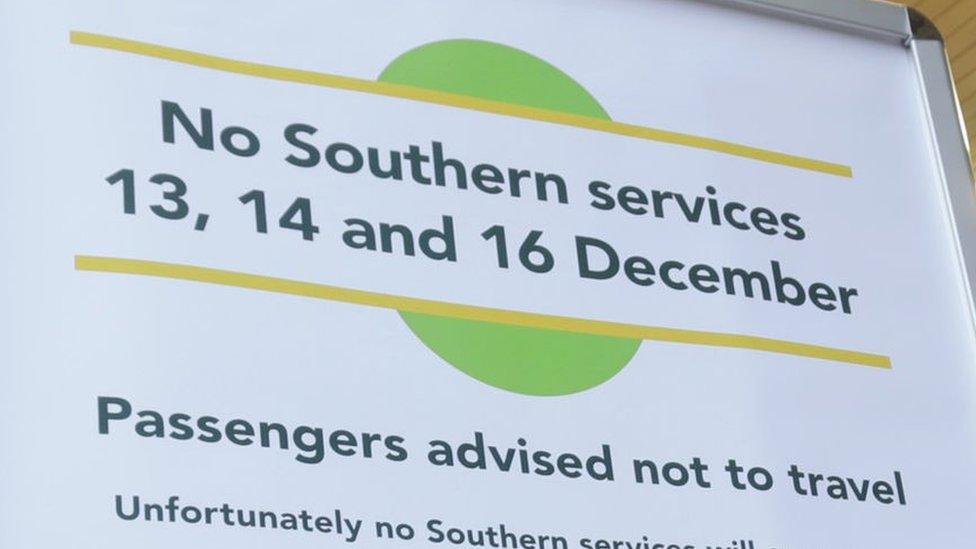
- Published24 January 2017
